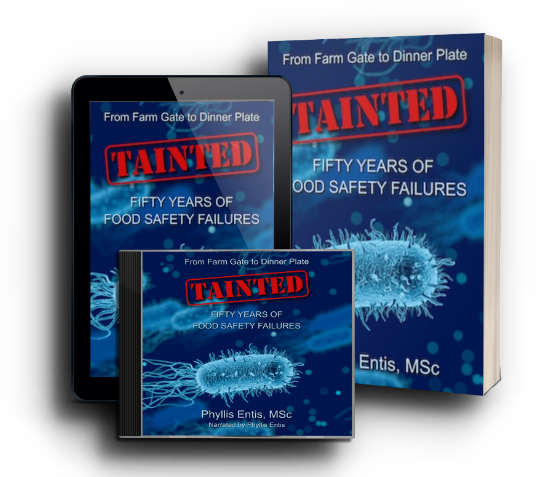Pet foods “…are not a regulated commodity in Canada.”
According to a spokesperson with the Canadian Food Inspection Agency (CFIA), the federal agency does not regulate the safety of domestic pet food.
As a result, the CFIA is sitting on the sidelines of the current investigation into an outbreak of extensively drug-resistant (XDR) Salmonella infections that has sickened forty individuals in six Canadian provinces since mid-2020 and sent thirteen of them to hospital.
Many of the outbreak victims are children under the age of five years.
Most of the illnesses have been linked to exposure to raw pet food or to dogs that were fed raw pet food. A few of the illnesses were linked to contact with cattle, particularly calves.
The outbreak strain was found in raw pet food from the home of one of the outbreak victims.
Even so, the CFIA has not initiated a food safety investigation, as no known food source meant for human consumption has been associated with the outbreak.
Canada’s non-existent pet food regulation
“Canadian pet food manufacturers and importers are responsible for the safety and hygiene of pet food, including recalling pet food when needed.” – CFIA spokesperson
Pet owners who want to “buy Canadian” must rely exclusively on so-called voluntary compliance to ensure the safety of the kibbled, canned, cooked or raw foods they feed their pets.
Those pet food manufacturers who are members of the Pet Food Association of Canada (PFAC) voluntarily follow the nutritional standards set out by the American Association of Feed Control Officials.
Although it is the policy of the PFAC that its members implement and follow a recognized food safety program, membership in this organization is completely voluntary. Most members companies are multinational.
Smaller, Canadian owned and operated pet food and pet treat manufacturers—including raw pet food manufacturers—are notable by their absence from the membership list.
Implications for human and animal health
Over and over again, consumers in Canada and the United States have been the victims of foodborne illness outbreaks as a result of contact with pet foods and pet treats.
When a pet food-related outbreak is detected and investigated in the United States and its source determined, the US Food and Drug Administration becomes directly involved in the investigation, including oversight of any product recalls.
In Canada, however, the CFIA only becomes directly involved in an outbreak investigation when it is clear that a food meant for human consumption is associated with the outbreak.
The CFIA does not conduct any investigation of pet foods or pet treats, even when they are identified as probable sources of human illness.
The CFIA does not inspect any pet food production facilities, even when the items produced there have been fingered as probable sources of human illness.
The CFIA does not oversee any recalls undertaken by pet food or pet treat manufacturers, even when these products have been identified as risks to human health.
This laissez-faire policy on the part of the Canadian government is reflected in the duration and magnitude of the current outbreak.
In short, when it comes to pet food safety, Canadian consumers and their companion animals are completely on their own.
“A complete and compelling account of the hidden and not-so-hidden ways the food we give our beloved pets can be contaminated.” – JoNel Aleccia, Health Reporter, Food & Nutrition, The Associated Press.
“An invaluable resource for busy pet owners” – Food Safety News
Available from all major on-line retailers, including:








